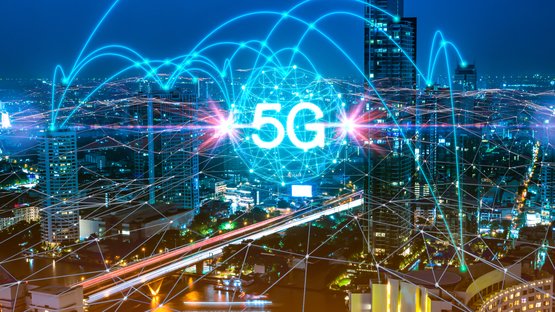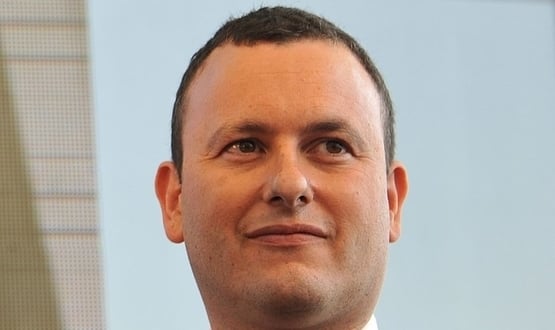Knowledge of 5G potential needs to be embedded into NHSX, report finds
- 7 August 2019

Knowledge and experience on the potential of 5G needs to be embedded into NHSX in order for the benefits of the technology to be realised, a new report has found.
But the potential for 5G to transform online consultations and remote care may not be realised if it’s not made affordable for all patients, it warned.
The joint report from Tech UK and the Liverpool 5G Testbed programme on how 5G can transform health and social care provided six recommendations on how to best harness the power of the technology in order to benefit healthcare. This includes the sharing of knowledge between the Department for Digital, Culture and Media and the Department of Health and Social Care to embed expertise into the newly formed NHSX.
The government needs to accelerate the deployment of 5G across the country, it found, as well as provide health and social care professionals with the network technology, particularly in rural areas where connectivity is limited.
5G also has the power to give patients better access to their own health data through wearables, encouraging them to manage their own conditions; provide greater access to online consultations; and connect medical devices with a faster network to enable better remote monitoring of patients, the report found.
But Rosemary Kay, Liverpool 5G Health and Social Care project lead, warned that those who live in deprived areas risk missing out due to the expense of new technologies.
“This is a key point in the history of health and social care, we have the chance to usher in changes that could transform people’s lives for the better,” she said.
“If we’re serious about harnessing technology to create a sustainable and effective health and social care sector, we need to make the link between the affordability of connectivity and access for everyone.
“If we fail to make this link, the poorest communities will continue to miss out on the opportunities technology can offer them.”
Sophie Weston, programme manager for communications infrastructure at TechUK, said 5G was a “crucial” element in the transformation of healthcare.
“Great digital connectivity is crucial for the UK and is essential to enable the adoption of enhanced technologies and applications that can help create a more open digital economy that works for everyone,” she said.
“The enhancement that 5G can bring to sectors such a manufacturing, logistics, transport, and healthcare will revolutionise our lives. We should be looking forward to the opportunities that 5G can bring and the way that this technology can help with our health, within the hospital and at home.”
[themify_box icon=”info” color=”gray”]
The reports recommendations in full:
- Accelerate the deployment of 5G to the majority of the country, enabling UK consumers and businesses to take early advantage of the benefits
- Support the uptake of digital health tools to the general public by a) utilising government data and communication channels to promote the benefits of digital health tools and b) reviewing how the personal budgets programme could better support the uptake of personal digital technology
- Foster knowledge exchange between Department for Digital, Culture and Media and the Department of Health and Social Care to embed knowledge, experience and expertise on the potential of 5G into the newly formed NHSX
- Ensure that the new NHS England app allows the public to access data beyond that held in primary care – and promote the ability to do so
- Provide health and social care professionals in the community with 5G technology, particularly in rural areas with limited health and social care provision, where consumer options for getting online are also limited
- Ensure the NHS can capitalise on developments in AI, genomics, 5G, and blockchain technology
[/themify_box]
5G is already being used in some pockets of healthcare, including robotics and remote surgeries.
The Liverpool 5G programme is part of the government’s testbeds and trials programme, announced in early 2018, which has driven improved mobile connectivity in multiple industries, including healthcare.
The Sensor City programme in Liverpool, made up of 11 organisations from Liverpool’s hospitals, council, universities and technology SMEs, has so far benefited from £4.9million funding to help explore how 5G can improve health and social care, including the use of sensors to monitor patients remotely.
The funding has also contributed to 5G solutions to benefit people living with long-term conditions like diabetes and epilepsy in Liverpool’s Kensington area.
University Hospitals Birmingham NHS Foundation Trust (UHB), BT and WM5G have teamed up to deliver new technologies for front-line staff to diagnose patients quicker, including a robotic glove powered by 5G that enables remote diagnostics performed by paramedics.
Technology giant Ericsson has previously labelled 2020 to be the year 5G will be launched in healthcare. While experts have also warned poorly regulated 5G technology may lead to “potentially catastrophic cyber threats and security breaches”.





1 Comments
5G is the new AI.
Whilst I am sure there is a great potential from this kind of connectivity, it’s not a silver bullet that’s going to fix everything. Online consultations and remote monitoring is already achievable with 3G/4G/broadband. Why wait for 5G… which early tests in the US have proven to have signal issues, caused by the high frequencies getting interfered with by solid objects, and the lack of devices that can use 5G. Get implementing the tech that exists now.
Comments are closed.